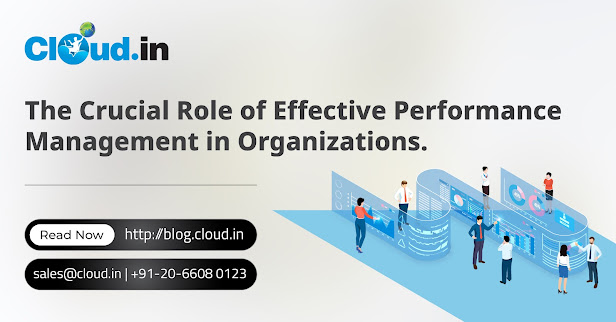Effective performance management is a cornerstone of success for any organization. It involves a systematic approach to aligning employees' goals and behaviors with the overall mission and objectives of the organization. In today's fast-paced and competitive business environment, the importance of effective performance management cannot be overstated. Let me explain why effective performance management is vital for organizations and how it can lead to improved employee engagement, productivity, and overall business success.
Goal Alignment:
Effective performance management helps align individual and team goals with the organization's strategic objectives. When employees understand how their work contributes to the bigger picture, they are more motivated and focused on achieving those goals. This alignment ensures that everyone is moving in the same direction, which is essential for organizational success.
Employee Development:
Performance management provides a structured framework for employee development. Regular performance evaluations and feedback sessions enable employees to identify their strengths and areas for improvement. With this information, organizations can offer targeted training and development programs, helping employees grow in their roles and prepare for future responsibilities.
Improved Communication
Open and transparent communication is a fundamental component of effective performance management. Regular performance discussions allow for two-way communication between employees and their managers. This dialogue fosters a culture of openness, trust, and collaboration within the organization. Employees feel heard and valued, leading to higher job satisfaction.
Increased Employee Engagement
Engaged employees are more committed to their work and the organization. Effective performance management encourages employee engagement by recognizing and rewarding top performers, addressing concerns, and providing opportunities for career growth. Engaged employees are more likely to go the extra mile, resulting in improved customer satisfaction and higher profitability.
Enhanced Productivity
When employees understand their roles and responsibilities clearly and receive regular feedback, they tend to be more productive. Performance management helps identify obstacles or challenges hindering productivity and offers solutions to overcome them. Managers can also set performance expectations and provide the necessary resources for employees to excel in their roles.
Accountability
Accountability is a vital aspect of effective performance management. It ensures that employees take ownership of their work and are responsible for meeting their performance targets. When employees know that their performance is being monitored and evaluated, they are more likely to meet or exceed expectations.
Better Decision-Making
Performance data collected through effective performance management can inform strategic decision-making within the organization. By analyzing performance metrics, organizations can identify trends, areas of improvement, and potential opportunities for growth. This data-driven approach enables organizations to make informed decisions that align with their goals and objectives.
Employee Retention
Organizations that invest in effective performance management are more likely to retain top talent. Employees appreciate the opportunity to develop their skills, receive constructive feedback, and have a clear path for career advancement. This, in turn, reduces turnover rates and the associated costs of recruiting and training new employees.
In conclusion, effective performance management is not just a human resources process; it is a critical driver of organizational success. By aligning goals, fostering employee development, improving communication, increasing engagement, enhancing productivity, promoting accountability, supporting decision-making, and retaining top talent, effective performance management plays a pivotal role in achieving sustainable growth and competitiveness in today's business landscape. Organizations that prioritize and implement effective performance management practices are more likely to thrive and adapt to changing market conditions, ultimately reaching new heights of success.
Written by, Sonal Salunkhe - Bhagat (Manager - People , Culture and Analytics @ Cloud.in)


%20(1).png)
No comments:
Post a Comment